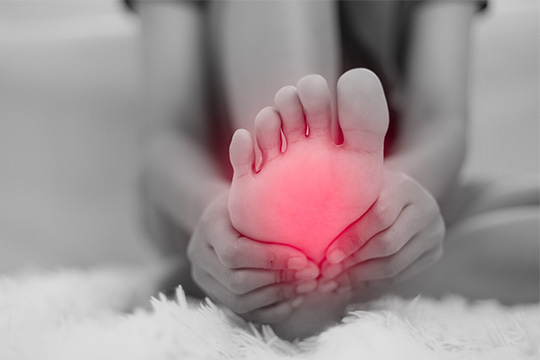Home > Disease and Treatments > Emergency Care 101: What to Do in a Medical Crisis
Emergency Care 101: What to Do in a Medical Crisis
Emergencies strike without warning. A sudden heart attack, a car accident, a child choking. In these moments, knowing how to respond can mean the difference between life and death. At Royal Care, we believe awareness and preparedness empower individuals to act swiftly and confidently during medical crises. This guide offers clear, actionable steps to help you navigate a medical emergency while also highlighting how Royal Care supports you every step of the way.
What Qualifies as a Medical Emergency?
A medical emergency is any sudden illness or injury that threatens life or long-term health.Common emergencies include:
- Chest pain or suspected heart attack
- Stroke indicators such as slurred speech, facial drooping, or paralysis
- Severe bleeding
- Loss of consciousness
- Difficulty breathing
- Seizures
- Serious head injuries
- Suspected poisoning or overdose
- Burns or electric shocks
Recognizing these signs ensures that you seek help quickly and appropriately.
Immediate Steps to Take in a Medical Crisis
1. Stay Calm and Assess the Situation
Panic can lead to mistakes. Take a moment to breathe, observe, and determine if the person is responsive.
2.Call Emergency Services (Dial 108 in India)
Provide clear details about your location, the person’s condition, and any known medical history.
3.Perform First Aid Only If Trained
- In case of cardiac arrest: Start CPR right away if the person is unresponsive and not breathing.
- For bleeding: Apply pressure with a clean cloth to stop the bleeding.
- For choking: Use the Heimlich maneuver for adults or age-appropriate methods for children.
4.Do Not Move the Injured Unless Absolutely Necessary
In cases of trauma or suspected spinal injuries, movement can worsen the condition.
5.Support Until Help Arrives
Monitor breathing, pulse, and responsiveness. Keep the patient calm and comfortable.
The Role of Pre-Hospital Care in Emergency First Aid
Pre-hospital care involves the evaluation, stabilization, and emergency treatment given before arriving at a hospital. EMTs and paramedics offer this critical first line of support.
Key benefits include:
- Immediate intervention through on-site life-saving measures like CPR or bleeding control
- Stabilization of airway, breathing, and circulation
- Safe transport while care continues en route
- Ensuring smooth handover with hospital staff to maintain continuous treatment
Emergency Patient Care: Handling Critical Situations Confidently
Emergencies require prompt, informed action. Whether you are a healthcare provider or a bystander, knowing the basics is vital.
Understanding the basics:
The “golden hour” refers to the first 60 minutes after serious injury or illness when prompt care can significantly increase survival chances, improving outcomes by as much as 74%
Focus on the ABCs: Airway, Breathing, and Circulation—timely attention here can boost survival rates by 30%.
Key components of care include:
- Cardiopulmonary resuscitation, which can double or triple survival chances after cardiac arrest
- Choking response, where proper techniques like the Heimlich maneuver can prevent up to 70 percent of fatal incidents
- Trauma management, where quick stabilization reduces long-term damage
Emergency Medical Services (EMS)
The role of EMS is vital. Integrated EMS systems improve outcomes by 25 percent in time-sensitive emergencies.
Clear communication during emergencies reduces response times by up to 40 percent and ensures better patient outcomes.
Common Emergency Scenarios
Cardiac emergencies require prompt recognition and action to reduce mortality by 20 percent.
Respiratory distress is a frequent cause for emergency visits; early treatment helps prevent respiratory failure and lowers hospital admissions by 15%.
Preparedness and Prevention
Create a home emergency kit that includes first aid essentials, flashlights, medications, and Royal Care’s emergency contact information.
Community training in basic emergency care reduces injury severity by 30 percent during crises.
Institute of Critical Care Medicine and Emergency Services at Royal Care
Royal Care’s Institute of Critical Care Medicine provides expert, life-saving care with advanced technology and a skilled multidisciplinary team. Our 32-bed ICU includes specialized units for cardiac, neonatal, and immunocompromised patients, equipped with modern ventilators, diagnostics, dialysis, and electronic charting for enhanced care.
Our 24/7 emergency services offer rapid triage, stabilization, integrated ICU support, and immediate ambulance dispatch. With speed and compassion, Royal Care ensures critical care is always accessible when it matters most.
Final Thoughts: Stay Aware, Stay Prepared
Medical emergencies can happen at any time. With knowledge and the dependable care offered by Royal Care, you can face crises with courage and calm.
Save Our Emergency Contact Today:
+91 422 - 2227000 / +1800 4120 3539Visit us or call for 24/7 emergency support — your health is our priority.
Appointments must be made 24 hours in advance.
Book an AppointmentRECENT BLOGS

Cardiovascular disease remains the leading cause of mortality worldwide, accounting for ne...
Read More
Headaches are among the most common ailments people experience, but not all headaches are ...
Read More
Living with diabetes means taking extra care of your health and one of the most important ...
Read More
